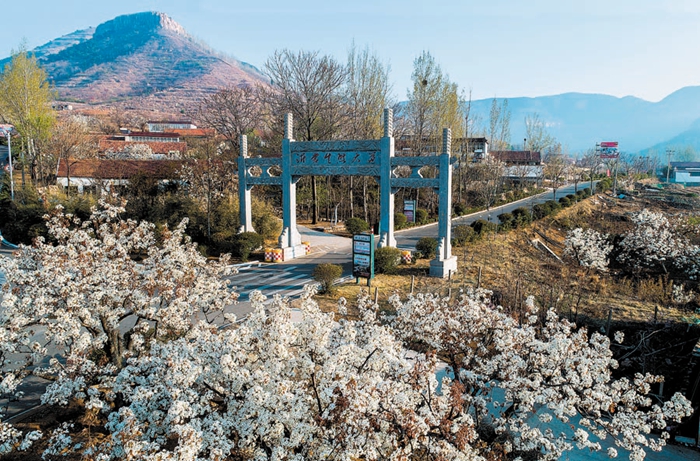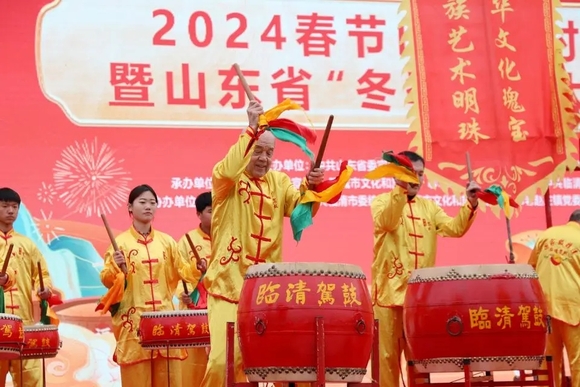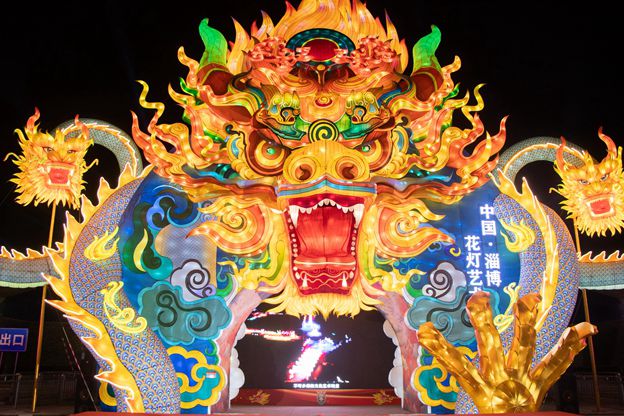'Yimeng spirit' still inspires
By Zhao Ruixue| (China Daily)| Updated : 2021-06-29
Print Print
A 59-kilometer highway connects 26 villages in the Yimeng mountainous area of Shandong province with the outside world. The road has become an artery for rural development, and has been instrumental in transporting villagers out of poverty. [Photo provided to China Daily]
A tourism revolution
Yinan county in Linyi is using its revolutionary resources from China's struggle for liberation in the 1930s and '40s to boost its cultural and tourism development.
There are more than 180 verified revolutionary sites throughout villages of the county, leaving a wealth of revolutionary relics. Among them, one is a national-level site and four are provincial-level, says Yuan Junguo, deputy director of the cultural relic protection center of the county's cultural and tourism bureau.
To protect the revolutionary sites, the county has built a batch of museums and memorial halls. Local government has spent over 700 million yuan developing a tourism area where visitors can try their hands at making local food and handicrafts, and experiencing intangible cultural heritage firsthand, such as paper-cutting and making dough figurines.
During the recent Dragon Boat Festival, hundreds of groups of tourists visited to learn stories of the heroic mothers of Yimeng, a group of women who voluntarily took care of soldiers and their children during the war.
Dong Yanli from Shandong's Qingdao couldn't hold back tears after visiting the houses where the Yimeng mothers once lived.
"I am deeply moved by the touching stories of the Yimeng mothers. I will tell the stories to my children," she says.
One of the subjects of those stories is Wang Huanyu, who was born in 1888. Wang joined the Party in 1938. She founded a wartime nursery to raise unattended children of soldiers in 1939 when the Communist Party of China-led Eighth Route Army settled in her hometown, using it as a revolutionary base.
My grandma felt sorry for the children who moved to the revolutionary base with their parents because their parents needed to focus on the war, leaving the children unattended, says Yu Aimei, Wang's granddaughter.
"So she suggested that villagers take care of the children, believing it to be a way to contribute," says Yu.
Wang asked her daughter-in-law to feed the children of the soldiers who had sacrificed their lives with her breast milk. However, because there was not enough to feed several children, Wang's own grandchildren had to eat coarse grains. Due to the harsh living conditions and extreme poverty at that time, four of Wang's grandchildren died from malnutrition.

 2024 Shandong Rural Cultural and Tourism Festival
2024 Shandong Rural Cultural and Tourism Festival  Celebrate Spring Festival in Zibo
Celebrate Spring Festival in Zibo  Share your views on 2024 China's govt work report
Share your views on 2024 China's govt work report